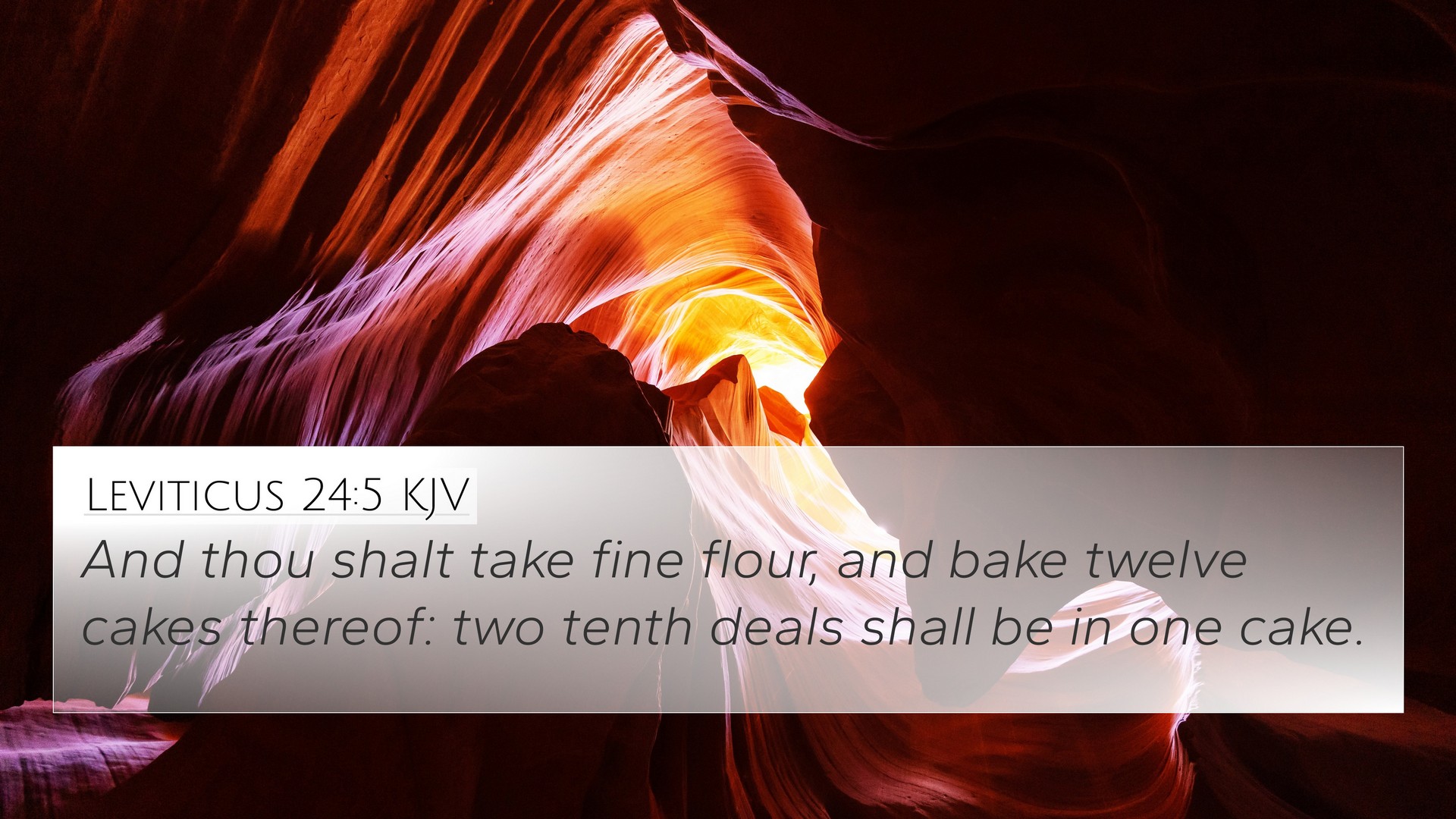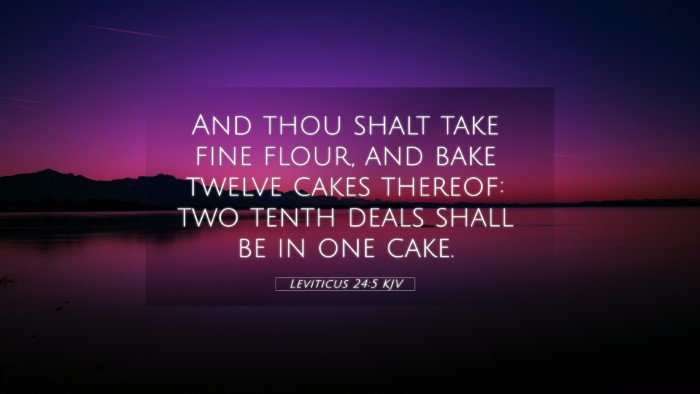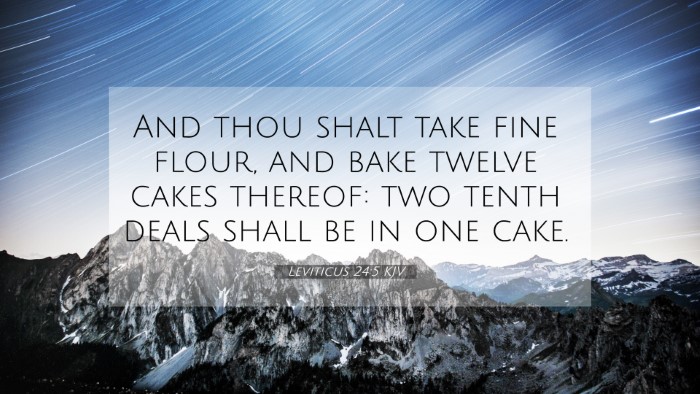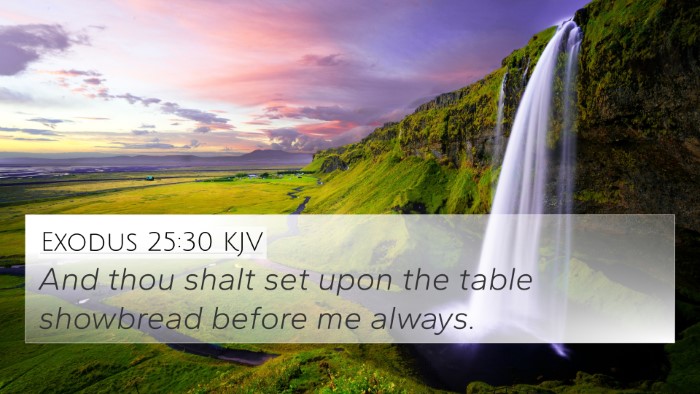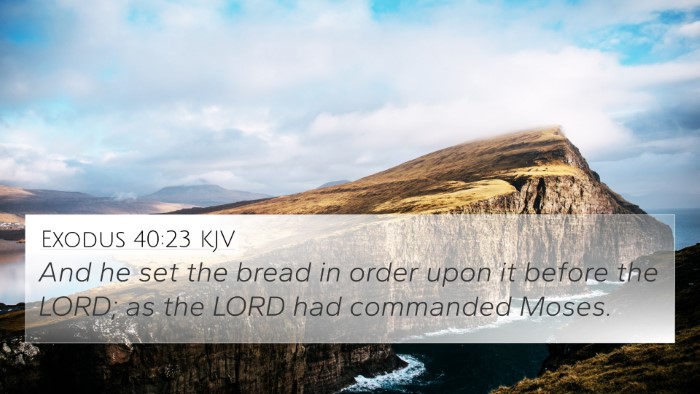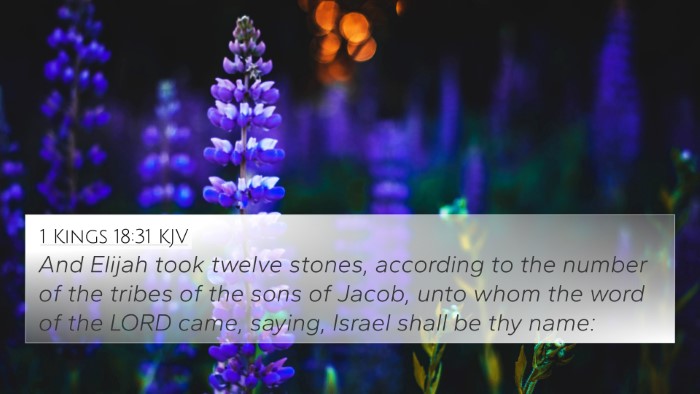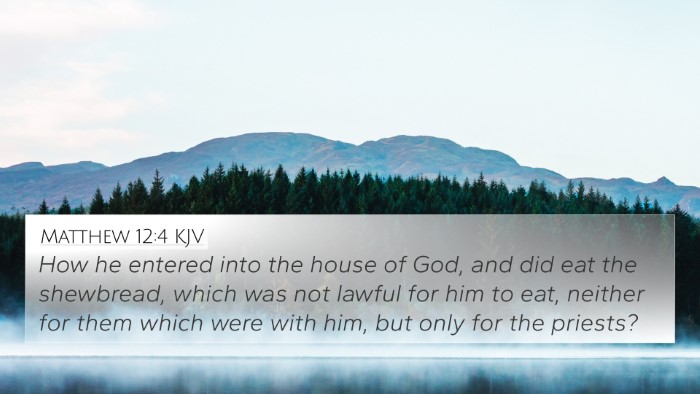Understanding Leviticus 24:5
Bible Verse: Leviticus 24:5 - "And thou shalt take fine flour, and bake twelve cakes thereof: two tenths deals shall be in one cake."
Summary of Meaning
Leviticus 24:5 provides instructions regarding the showbread, which was to be made from fine flour and presented before the Lord as a continual act of worship and sustenance in the tabernacle. This verse exemplifies the significance of worship and the offerings given to God, as well as the importance of obedience to His commands.
Commentary Insights
- Matthew Henry: Matthew Henry emphasizes the importance of the showbread as a symbol of God's provision. He highlights that the twelve loaves represent the twelve tribes of Israel, indicating the collective relationship between God and His people. The act of baking these loaves signifies a continual remembrance of God's goodness.
- Albert Barnes: According to Albert Barnes, the preparation of the bread was an act of service to God, demonstrating the dedication of the Israelites. He notes the measurements given in the verse, implying the precision and care required in offering to God, which shows that worship must be done in accordance with divine instructions.
- Adam Clarke: Adam Clarke observes that the expression "fine flour" indicates purity and quality, suggesting that offerings to God should be of the best. Clarke also discusses the role of the priests in presenting the bread, reflecting the responsibilities of those set apart for spiritual leadership in maintaining worship practices.
Cross-References
This verse can be understood in light of several other scripture passages. Here are key Bible verse cross-references:
- Exodus 25:30 - "And thou shalt set upon the table showbread before me alway."
- 1 Samuel 21:6 - "So the priest gave him hallowed bread: for there was no bread there but the shewbread, that was taken from before the Lord, to put hot bread in the day when it was taken away."
- Matthew 12:4 - "How he entered into the house of God, and did eat the shewbread, which was not lawful for him to eat, neither for them which were with him, but only for the priests."
- Hebrews 9:2 - "For there was a tabernacle made; the first, wherein was the candlestick, and the table, and the shewbread; which is called the sanctuary."
- John 6:35 - "And Jesus said unto them, I am the bread of life: he that cometh to me shall never hunger; and he that believeth on me shall never thirst."
- Leviticus 24:6 - "And thou shalt set them in two rows, six on a row, upon the pure table before the Lord."
- Numbers 4:7 - "And upon the table of shewbread they shall spread a cloth of blue, and put thereon the dishes, and the spoons, and the bowls, and the cauldrons, and the shewbread shall be thereon."
Thematic Connections
When considering the thematic connections between Leviticus 24:5 and other scripture, it is essential to note:
- Worship: The act of offering the showbread is a representation of devotion and worship to God. This parallels many verses that speak of offerings and sacrifices.
- God’s Provision: Just as the showbread symbolizes God’s continuous provision, other verses reaffirm God's role as provider, such as Philippians 4:19.
- Obedience: The necessity for precise adherence to God's instructions in worship reflects the broader biblical theme of obedience, seen in Deuteronomy 11:1.
Applications for Cross-Referencing Study
The study of Leviticus 24:5 alongside other scripture encourages a more profound understanding of Biblical themes through cross-referencing. Here are some tools for effective Bible cross-referencing:
- Using a Bible concordance to explore terms related to showbread and offerings.
- Engaging in a cross-reference Bible study with a focus on the significance of bread and its representation in both Old and New Testament.
- Identifying connections between Old and New Testament teachings, particularly regarding the fulfillment of sacrificial symbols in Jesus.
Conclusion
Leviticus 24:5 serves as a profound reminder of God's expectations in worship, the careful preparation of offerings, and the continuous need for God's provision among His people. Moreover, the interconnectedness of Biblical texts enhances our understanding of scripture, calls us to deeper study, and enriches our worship experience. Through the tools of Bible cross-referencing and comparative analysis, believers can explore the rich thematic connections and implications of this verse in the Christian faith.
